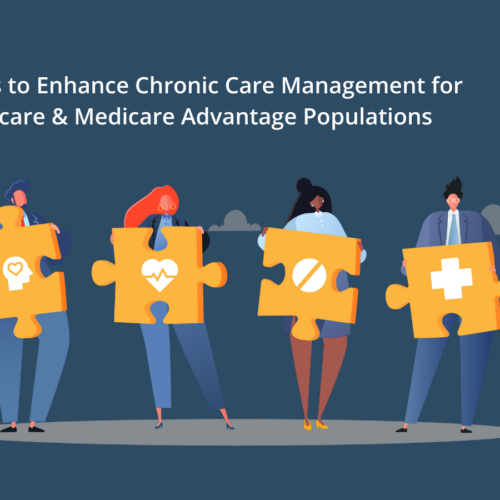Four ways technology supported by artificial intelligence (AI) and the internet of things (IoT) is creating a connected, consumer-driven health industry that enables greater health equity and overall care Sustainability. Transparency. A paradigm shift from reactive acute care to proactive preventive care. These goals are driving big changes in the healthcare industry. They’re part of...
Author: elliginthealth (Elligint Health)
5 Strategies to Effectively Manage Medicaid Populations
As of May 2022, nearly 89,000,000 people were enrolled in Medicaid and the Children’s Health Insurance Program (CHIP), according to government data. To effectively manage care for these populations, payers and providers must do the following: Streamline delivery of preventive, holistic care Broaden access to resources for enrollees Boost patient/member engagement Improve coordination of care...
How Can Virtual Visits Address SDOH and Improve Member Outcomes?
Virtual visits and telehealth solutions are here to stay. COVID-19 may have fast-tracked telemedicine (March 2020 saw a 154% increase in telehealth visits as compared to March 2019.), but in fact, the evolution of virtual care has only just begun. 38% of patients have received care via virtual visits in 2022 research shows 76% of patients who had...
11 Ways HELIOS Can Help Payers with Complex Medicare Populations
Improving health outcomes and reducing costs of care for Medicare populations may seem like an overwhelming challenge with chronic conditions costing billions each year. After all, these populations are typically older, and with age comes the onset of some of the most common (and expensive to manage) chronic conditions, such as cardiovascular disease, heart failure, hypertension,...
6 Ways to Enhance Chronic Care Management for Medicare & Medicare Advantage Populations
Improve Health Outcomes, Drive Member Engagement, and Reduce Costs Complex and chronic conditions are commonplace among Medicare populations, and one of the most expensive drivers of healthcare spending. In 2017, an estimated 66 percent of all non-dual-eligible Medicare beneficiaries were living with two or more chronic conditions. In 2020, data from the Chronic Conditions Data...
How Does Managed Care Reduce Healthcare Disparities?
Over the past few decades, health programs such as Medicare and Medicaid have increasingly turned their attention to solving the social and economic inequalities that contribute to health disparities. As they continue to strategize on the best ways to address health disparities, many plans and states are gradually shifting to managed care models in response....
How Can HELIOS Improve Medicare Advantage Plan Member Experiences?
Medicare Advantage (MA) plans have fully embraced whole-person, integrated care and are designed to provide members with much more than traditional clinical healthcare. Many provide additional value-added benefits and services such as dental, vision and hearing coverage, wellness rewards, and transportation to medical appointments. From traditional Medicare Advantage plans to Medicare Advantage plans with prescription...
Track 2 of the Making Care Primary Model: Integrating & Expanding Care Services
Track 2: Implementing Advanced Primary Care CMS’ recently announced Making Care Primary (MCP) model advances the agency’s drive to shift from a fee-for-service model to a value-based care model. The MCP model takes a tiered approach, with three tracks of participation. This progressive structure is intended to enhance coordination of care and unlock better health...
How to Get Started with the Making Care Primary Model
Track 1: Building the Infrastructure for Better Value-Based Primary Care CMS recently announced its new Making Care Primary (MCP) model, a voluntary initiative set to launch in July 2024 among selected participants in eight states. As of September 2023: “CMS is working with State Medicaid Agencies in eight states – Colorado, North Carolina, New Jersey,...
Future of Care Chat – Episode 6: Resources & the Challenge in Achieving Healthcare Data Interoperability
Why is healthcare data interoperability so difficult to achieve? The technical staff currently needed to manage healthcare data exchange to meet interoperability standards and requirements is extensive, burdensome, and costly. A streamlined FHIR® data solution could significantly reduce all three and help organizations overcome critical data challenges. In the final episode of our data interoperability...











